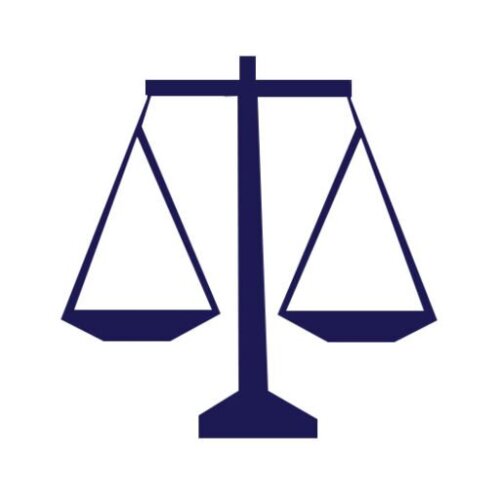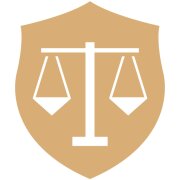Best Mining Law Lawyers in Trikala
Share your needs with us, get contacted by law firms.
Free. Takes 2 min.
List of the best lawyers in Trikala, Greece
About Mining Law in Trikala, Greece
Mining Law in Trikala, Greece refers to the regulatory framework governing the exploration, extraction, processing, and reclamation of mineral resources within the region. Greece is known for its rich mineral deposits, and areas like Trikala may have economic activity related to quarried materials, sand, gravel, stone, and other minerals. Greek Mining Law, as established by national legislation and local regulations, sets out the rules for obtaining mining rights, the obligations of mining companies or individuals, environmental requirements, health and safety standards, and the procedures for resolving disputes. In Trikala, these laws are influenced not only by national legal standards but also by regional and local regulations to protect the environment and local communities.
Why You May Need a Lawyer
There are several instances where an individual, company, or landowner in Trikala may require legal guidance regarding Mining Law. You may need a lawyer if you are planning to start a mining operation and need help with licensing and permits. Legal support is also essential for negotiating land use agreements, resolving disputes over mineral rights ownership, and complying with strict environmental protection requirements. Other common situations include challenging administrative decisions, defending against penalties for violations, representing stakeholders in compensation claims, and advising foreign investors on local legal frameworks. A lawyer can help navigate the complex intersection of local, national, and European Union regulations.
Local Laws Overview
Mining activities in Trikala are regulated primarily by the Greek Mining Code, supplemented by environmental, urban planning, and labor laws. Key aspects include the requirement for official exploration and extraction permits, strict adherence to environmental impact assessments, and restoration obligations for mined sites. Local authorities may also impose zoning regulations affecting where mining can occur. The Ministry of Environment and Energy oversees much of the permitting process, while regional offices ensure compliance with safety and environmental standards. Anyone wishing to undertake mining must respect protected areas, archaeological sites, and the rights of local communities. Royalty payments and compensation to landowners are also mandated by law.
Frequently Asked Questions
What is required to start a mining operation in Trikala?
You must obtain exploration and extraction permits from the Ministry of Environment and Energy, undergo environmental assessments, and gain approval from local authorities.
Can private individuals own mineral rights in Trikala?
Mineral rights in Greece are generally owned by the state. However, landowners may still require compensation for surface rights or damages, and may be involved in certain types of mineral extraction such as quarrying.
How long does the permitting process take?
The timeline varies depending on the type and scale of the operation, but can take several months to over a year, largely due to required impact studies and public consultation procedures.
What environmental obligations do mining operators face?
Operators must conduct detailed environmental impact studies, follow strict guidelines to minimize environmental damage, and restore the mining site after use.
Is rehabilitation mandatory after mining activities?
Yes, Greek law requires mining operators to restore the land to an environmentally acceptable state, often including reforestation or landscaping.
Are there any protected areas where mining is prohibited?
Yes, mining is prohibited or heavily restricted in nature reserves, archaeological sites, water sources, and other protected zones established by national or local law.
What are the penalties for illegal mining activities?
Penalties can include heavy fines, closure of mining operations, criminal charges, and an obligation to remediate environmental damage.
Can foreign companies operate mines in Trikala?
Yes, but they must comply fully with Greek and European Union regulations, including obtaining all necessary permits and meeting local obligations.
How are local communities involved in the mining approval process?
Local communities are typically consulted during the environmental assessment process and may express concerns or object to proposed activities that impact their area.
What should I do if I have a dispute related to mining rights?
You should consult a specialized mining lawyer, as disputes may involve negotiations, administrative appeals, or civil litigation before Greek courts.
Additional Resources
Several organizations and governmental bodies provide information or assistance in the area of Mining Law in Trikala, Greece. The Ministry of Environment and Energy (Ypourgeio Perivallontos kai Energeias) is the primary regulator. The Decentralized Administration of Thessaly oversees regional permits and environmental controls. The Greek Mining Enterprises Association offers guidance for operators. For environmental concerns, the Hellenic Ministry of Environment and local municipal offices in Trikala can be helpful. If legal representation is needed, the Trikala Bar Association maintains a list of qualified attorneys familiar with Mining Law.
Next Steps
If you need legal assistance related to Mining Law in Trikala, gather all relevant documents, such as land titles, permits, correspondence with authorities, and environmental studies. Research lawyers who specialize in mining or environmental law and arrange for a consultation to discuss your case or project. Be prepared to explain your objectives and any issues you are facing in detail. If your matter is urgent, contact local municipal offices or the Ministry of Environment and Energy for guidance while you secure legal representation. Staying informed of changes to local and national regulations is also important, as these can impact your legal rights and obligations.
Lawzana helps you find the best lawyers and law firms in Trikala through a curated and pre-screened list of qualified legal professionals. Our platform offers rankings and detailed profiles of attorneys and law firms, allowing you to compare based on practice areas, including Mining Law, experience, and client feedback.
Each profile includes a description of the firm's areas of practice, client reviews, team members and partners, year of establishment, spoken languages, office locations, contact information, social media presence, and any published articles or resources. Most firms on our platform speak English and are experienced in both local and international legal matters.
Get a quote from top-rated law firms in Trikala, Greece — quickly, securely, and without unnecessary hassle.
Disclaimer:
The information provided on this page is for general informational purposes only and does not constitute legal advice. While we strive to ensure the accuracy and relevance of the content, legal information may change over time, and interpretations of the law can vary. You should always consult with a qualified legal professional for advice specific to your situation.
We disclaim all liability for actions taken or not taken based on the content of this page. If you believe any information is incorrect or outdated, please contact us, and we will review and update it where appropriate.









